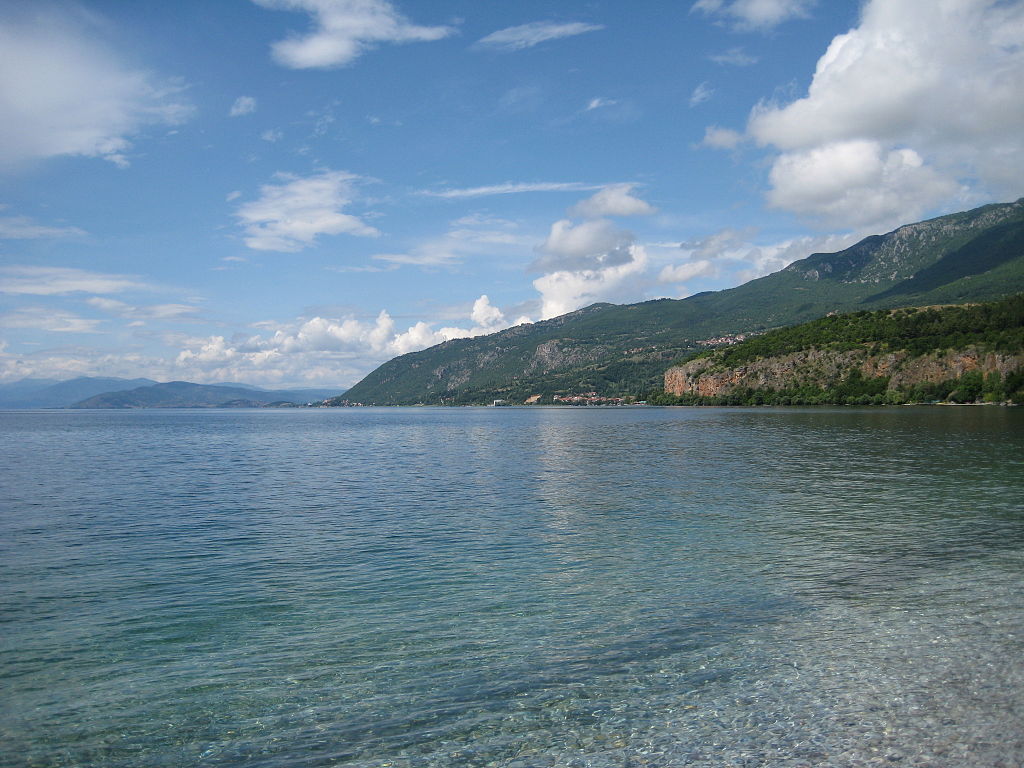TIRANA, August 20
The karst springs, in the region of Lake Ohrid in Pogradec, eastern Albania are verified that create micro-habitats that support the lives of endemic species. Supply with freshwater and scarce nutrients is essential for the maintenance of the oligotrophic state of Ohrid Lake. Since 2002, in all of the karst area resources, from the villages Udenisht and Tushemisht down to the southern border with North Macedonia, it is noted the use of these water resources for the growth of an alien species, such as the California golden trout.

The businesses related to fishing and fish-farming in the area of Drilon River and the village of Tushemisht are around 17, the majority of them within the banks of the river, using nets for their division, thus becoming a big threat for the unique flora and fauna of the lake. Also, the water of the fish-farming economy, in the system of Drilon resources, pollutes the water of the lake with food waste, and fish waste, increasing the depositions that change the eco-systems of the resources and surrounding wetlands (the quantity of the concentration that is used from these economies are some few hundred tones annually).

It should be stressed that all of these fishing and fish farms economies are without a license for practicing this activity (the law for the cross-border lakes of 2003 prohibits the creation of fishing businesses for alien species in the Ohrid Lake). Also, the constructions that are made within these businesses lack the required permits (they are not approved by the National Council of Territory). This phenomenon is present almost in all of the rivers that flow into the Ohrid Lake, becoming a serious threat for the eco-system itself. From an investigation, carried out in the majority of the rivers that flow into the Ohrid Lake, it results that there are 43 illegal businesses related to fishing and fish-farming.
A part of this business use as food the small fish of the Ohrid Lake, that is caught by the fishermen, especially in the area of Udenisht and Piskupat and the quantity reaches a few hundred kg per day. This fish quantity is used as food to substitute the concentrate. What is concerning, is the fact that the capture of the small fish, not only destroys the food chain in the eco-system but what is more important it reduces the fish reservoir in the lake.

The restoration of Drilon water resources, is critical for the preservation of the hydrological regime of the lake, for the prevention of the pollution and the preservation of the flora and fauna. The resources are declared a Nature Monument by the Albanian government, and the current changes that are made to them, are illegal. The fishing businesses are a big resource of pollution, and eutrophication, and jeopardize the growth of alien species in the lake. The Drilon River also provides with drinkable water the city of Pogradec, which should be preserved and remain clean.
Also, in the area of Drilon river, there are noted negative phenomena, such as:
1. One of the biggest resources in the area is owned and used illegally, as a private property
2. The resources and the surrounding area are modified considerably, mainly by the concrete constructions and fish farms
3. The pollution with antibiotics and other chemicals, used by the farmers of fishes
4. One of the specified resources of Drilon has a siphon depth of 50 meters, is owned illegally and used as a fish farm
5. Some karst springs, are owned illegally and in some cases used as a fish farms
The current situation is alarming and it requires an immediate reflection of the responsible authorities.
P.S. These facts are part of an investigative report about the potential polluters of Ohrid Lake, sponsored by the project ‘Evidence-based campaign on protecting Ohrid Lake’, implemented by DMO Albania, supported by Co-Plan, through a financial scheme, for projects by European Union.
Source/Lakeohrid.blogspot.com
Photo Credit/Markus Bernet
Read also: Albanian Part of Ohrid Lake Inscribed on UNESCO World Heritage List

Leave a Reply
You must be logged in to post a comment.